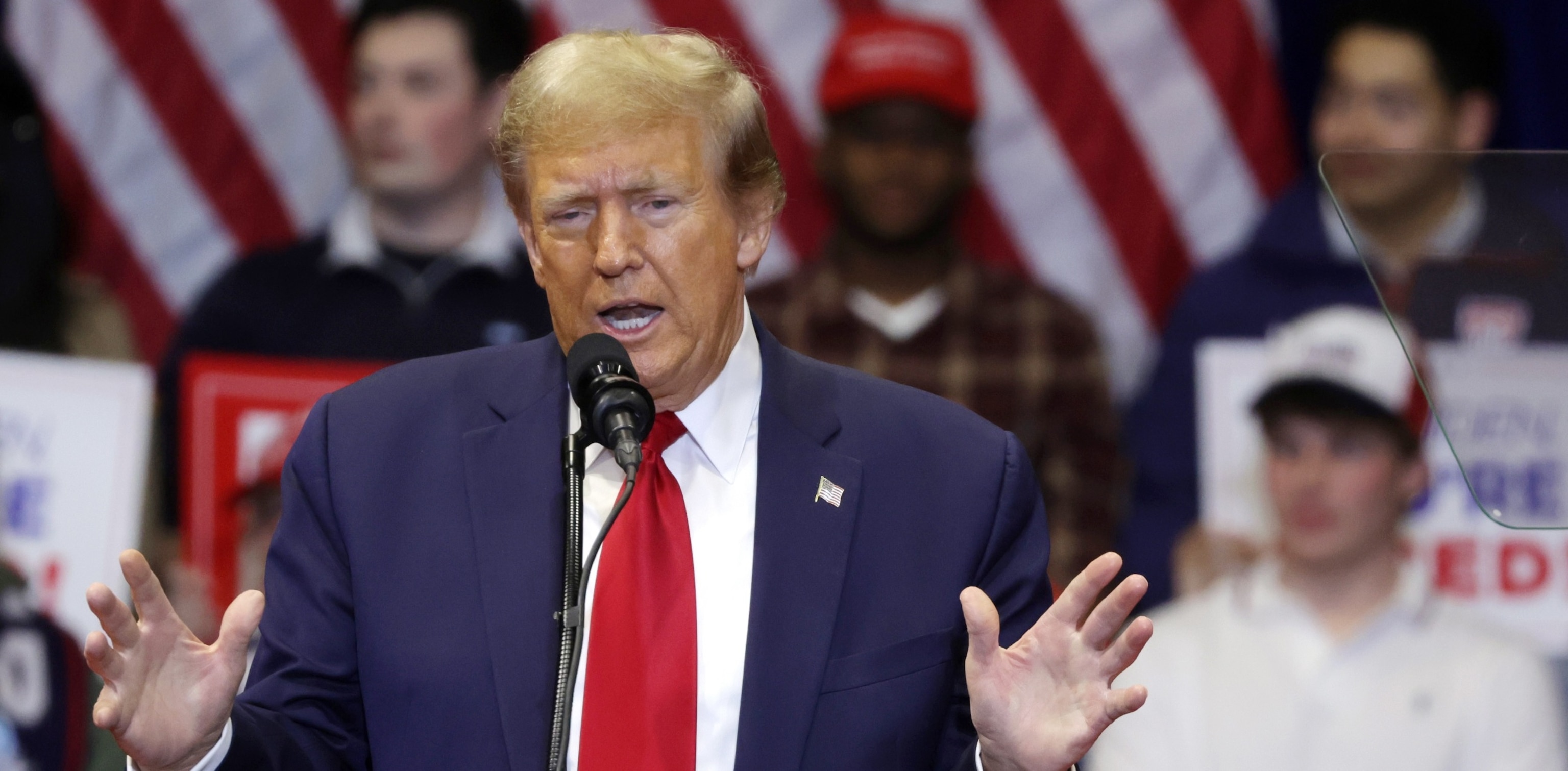Lawyers for former President Donald Trump are seeking to pause the enforcement of the penalties in his civil fraud trial, telling the court that he intends to post a bond of only $100 million — well short of the $464 million judgment ordered by Manhattan Supreme Court Judge Arthur Engoron.
Engoron’s judgment ordered Trump to pay a $355 million fine, plus interest, and blocked him from running any New York-based company, including his own, for three years.
In a court filing Wednesday, Trump’s lawyers argued that the penalties are “unprecedented and punitive.”
“The exorbitant and punitive amount of the Judgment coupled with an unlawful and unconstitutional blanket prohibition on lending transactions would make it impossible to secure and post a complete bond,” defense lawyers wrote in the filing. “Appellants nonetheless plan to secure and post a bond in the amount of $100 million.”
In the filing, Trump’s lawyers said that posting a bond to cover the entire judgment would not only be impossible but also unnecessary given the preexisting oversight provided by the Trump Organization’s independent monitor. According to the filing, the current oversight coupled with the $100 million bond ensures that New York Attorney General Letitia James could collect the judgment if needed.
“Those assets are not going anywhere, nor could they given the oversight of the Monitor and the practical realities of the existence of the very public Judgment,” the filing said.
In their motion for a stay, defense attorneys Clifford Robert and Alina Habba called Engoron’s order “draconian” and said the punishments would unfairly impede Trump’s family real estate business.

Republican presidential candidate and former President Donald Trump speaks during a campaign event at the Winthrop Coliseum on Feb. 23, 2024 in Rock Hill, S.C.
Alex Wong/Getty Images, FILE
“The extraordinary relief Supreme Court has granted is punitive, patently improper, unsupported by the evidence, and/or unavailable under the Executive Law, and is premised upon claims this Court ruled are time-barred,” the motion said.
The filing cited “the Attorney General’s public threats that she will seize Appellants’ real property forthwith to satisfy the Judgment,” a reference to remarks New York Attorney General Letitia James made during an interview with ABC News.
“If he does not have funds to pay off the judgment, then we will seek judgment enforcement mechanisms in court, and we will ask the judge to seize his assets,” James told ABC News last week.
“Supreme Court’s staggering $450 million judgment not only ignores this Court’s controlling decision in this very case, but also violates the Excessive Fines and Due Process Clauses of the U.S. and New York Constitutions,” the defense motion said.
“This untenable Judgment therefore threatens the entire New York business community, as it will render profitable, arms-length transactions between sophisticated commercial parties meaningless and subject to arbitrary, post hoc review by the Attorney General and the courts,” the motion argued.
Engoron, in his ruling earlier this month, found Trump, his adult sons, and two former Trump Organization executives liable for a decade of fraudulent business activity in which they used “numerous acts of fraud and misrepresentation” to inflate Trump’s net worth in order get more favorable loan terms. He ordering the defendants to pay a total of $464 million in disgorgement and pre-judgment interest.
Trump’s attorneys requested the stay pending their appeal of Engoron’s ruling, which they filed Monday.
Former President Donald Trump is seeking a stay of a $464 million judgment in a civil fraud case against him, as he plans to post a $100 million bond in order to delay the enforcement of the judgment. The case stems from allegations that Trump and his family business, the Trump Organization, engaged in fraudulent practices related to their real estate ventures.
The judgment was handed down by a New York state judge in July, after a lengthy legal battle that began in 2018. The case was brought by the New York Attorney General’s office, which accused Trump and his company of misleading investors about the value of their properties in order to secure loans and other financial benefits.
In seeking a stay of the judgment, Trump’s legal team argues that the amount is excessive and would cause irreparable harm to his business interests. They also claim that the judgment is politically motivated, as it comes from a state attorney general who has been critical of Trump in the past.
To delay the enforcement of the judgment, Trump plans to post a $100 million bond, which would allow him to continue appealing the decision while protecting his assets from being seized. The bond would cover the full amount of the judgment, plus interest and legal fees.
This latest development in the case is just one of many legal challenges facing Trump since leaving office. He is also facing criminal investigations in New York and Georgia, as well as numerous civil lawsuits related to his business dealings and personal conduct.
Despite these legal troubles, Trump remains a polarizing figure in American politics, with a loyal base of supporters who continue to rally behind him. The outcome of the civil fraud case and other legal battles will have significant implications for his future political ambitions and business interests.



